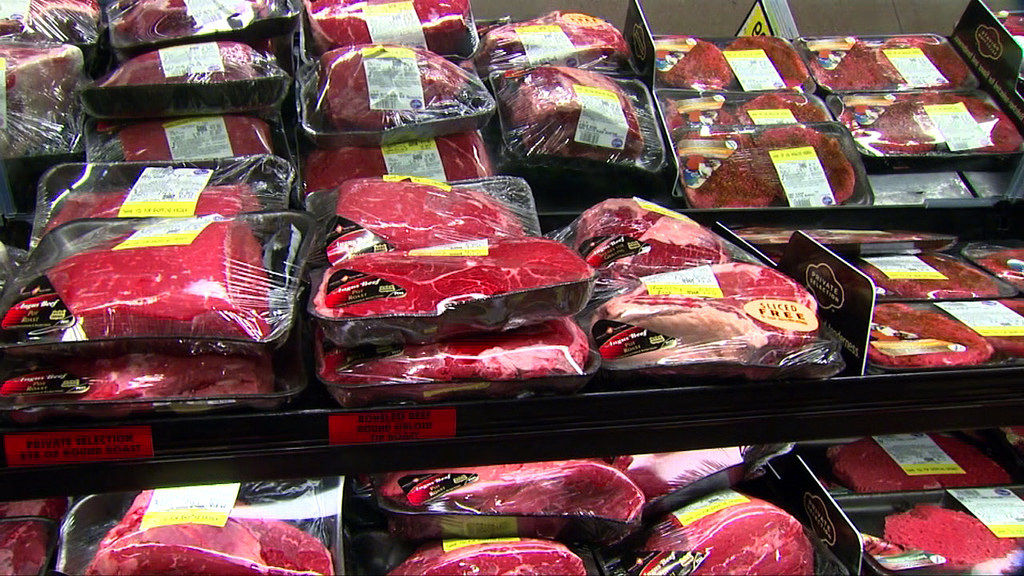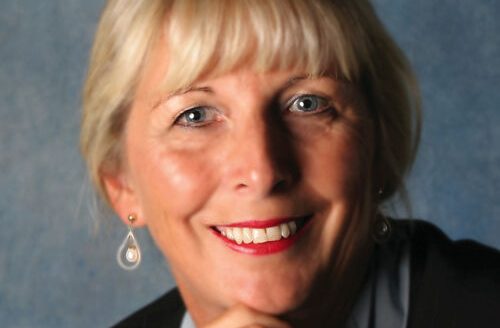Founded in 1865, Cargill’s leadership has navigated hundreds of changes and made several new acquisitions over the years, including expansion into the meat processing business in 1979. So, perhaps it’s no surprise that the world’s largest privately held company is talking about ways to reimagine not only it’s protein business, but the United States food system.

“As we continue to navigate new and existing global economic headwinds, we can and must reimagine what’s possible for our food system,” said Cargill Protein North America President Hans Kabat at the recent Ag Outlook Forum in Kansas City, Missouri. He oversees about 30,000 employees who produce food for 90 million people each day.
Kabat, who grew up on a farm in Michigan’s Upper Peninsula, has witnessed the need to adapt since his early years. He said his parents were not immune to economic downturns, but they “constantly adapted and reimagined what was possible on our farm and made the necessary pivots to ride out those challenges.
“We need that same sense of resilience and adaptability to navigate our current challenges both on large and small scales,” Kabat added.
There are 345 million people in 82 countries impacted by global food insecurity. In our country alone, over 33 million American households are living within food insecurity, according to Kabat.
“The success of our global food supply so often falls fairly or unfairly on farmers’ shoulders,” he added. At the same time, they have been “forced to adapt to climate and market volatilities amidst the global crisis of food insecurity.”
In addition to the need to produce more food, U.S. farmers face other challenges such as rural flight and shifting economics. Beef production has faced significant challenges from considerable price cycles of highs and lows throughout the supply chain, which Kabat said the industry has to learn to handle more smoothly.
“What we do know is the last cycle that we’ve been through in beef is not once-in-a-lifetime. It’s once-in-several-lifetimes. And that’s hard,” he said. “We need to continue to ask ourselves and demand more for making these cycles less severe than they are now.”
Kabat said this can be accomplished through commercial agreements with producers, livestock risk protection programs and new policy solutions such as low interest loans.
Cargill is working with farmers through its BeefUp Sustainability Initiative to link producers to customers. The firm partnered with the federal government, Nestlé and the National Fish and Wildlife Foundation to invest $30 million over the next five years. The beef program is expected to impact roughly 5.2 million acres by 2030 with a total investment across the program totaling nearly $80 million.
“We believe beef can be a force for good,” as the company works to cut greenhouse gas emissions 30% by 2030 through improved grazing management, feed production, innovation and reduction of food waste, Kabat said.
Cargill’s RegenConnect also compensates farmers for adopting regenerative agricultural practices such as no-till and cover crops. Since 2019, it has invested $7 million in cash payments, with 1,000 farmers participating on 625,000 acres in 15 states.
Kabat is excited about the future of Cargill’s beef protein business both domestically and around the world. “If you think about the 90 million people that we feed every day, that’s about 600 trucks of protein every day,” he said.
Although the company has invested in alternative meat options, it represents a very small part of world protein demand, and he has seen demand in that category starting to drop off. “We want to be non-judgmental about meeting that consumer need,” he said as the company works to better understand changing market dynamics.
“In the meantime, we’re going to focus on the 90 million that really are the core of our business,” he said.
Cargill is also trying to reimagine how it runs its operations by offering increased wages, additional benefits, bonuses, transportation and housing, and childcare and medical care offered on-site. They have partnered with community organizations to solve issues and bring new housing and childcare into communities that need it where their facilities operate.
Editor’s note: Sara Wyant is publisher of Agri-Pulse Communications, Inc., www.Agri-Pulse.



